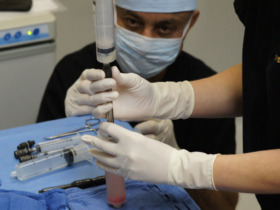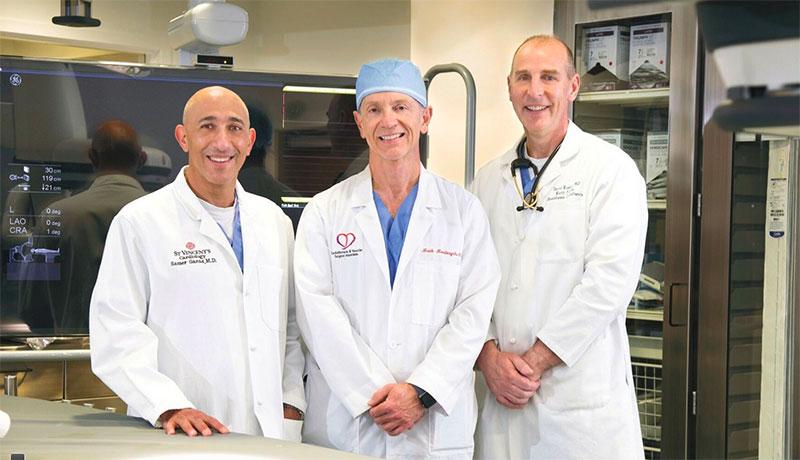3-Minute Read
Bill Gates: Within 10 Years, AI Will Replace Many Doctors and Teachers—Humans Won’t Be Needed ‘For Most Things’
Bill Gates’ candid acknowledgment that AI will replace many doctors and teachers within a decade is a rare dose of honesty in a field often clouded by empty reassurances. While most AI proponents insist that automation will merely enhance human work rather than replace it, Gates’ remarks suggest that large-scale displacement is inevitable. The real question is: What does this mean for Florida doctors, and how can they adapt to this seismic shift?
AI’s Disruptive Potential in Medicine
Florida doctors must recognize that AI is advancing rapidly in diagnostics, treatment planning, and patient interaction. While AI will not replace the human element of medicine—empathy, ethical judgment, and the doctor-patient relationship—many traditional functions of physicians will be automated. AI-driven diagnostics are already surpassing human accuracy in radiology and pathology, and virtual health assistants are handling patient inquiries with increasing sophistication.
For doctors, this reality is both a challenge and an opportunity. The challenge is clear: AI-driven healthcare solutions will inevitably lead to cost-cutting measures that reduce demand for certain medical professionals. However, the opportunity lies in positioning oneself at the forefront of this transformation. The doctors who succeed in the coming decade will be those who understand where the “puck is going,” as Wayne Gretzky famously advised, and proactively align themselves with technological advancements.
How Florida Doctors Can Adapt
- Embrace AI as a Tool, Not a Threat: Physicians should integrate AI into their practice rather than resist it. Leveraging AI for enhanced diagnostics, predictive analytics, and treatment recommendations will allow doctors to offer superior patient care.
- Develop Unique Value Propositions: As AI handles routine tasks, human physicians will need to differentiate themselves in ways that AI cannot. Specializing in personalized, concierge, or holistic medicine could provide a competitive advantage.
- Engage in Lifelong Learning: Continuous education in AI-driven healthcare technology will be essential. Doctors should seek out training in medical AI applications to ensure they remain indispensable in a changing landscape.
- Advocate for Doctor-Patient Alignment: AI should enhance, not erode, the relationship between doctors and patients. Physicians must push for healthcare models that prioritize patient trust and clinical judgment over algorithmic decision-making.
The Impact on Healthcare Regulation and Physician Autonomy
AI’s rapid adoption will also have profound regulatory implications. Healthcare laws and policies will need to evolve to address liability issues, AI’s role in clinical decision-making, and data privacy concerns. Policymakers may side with large health systems and insurers that push for AI-driven automation to cut costs, potentially further marginalizing practitioners.
AI as a Lever for Health Systems and Insurers
Large health systems will likely use AI to consolidate their dominance, employing it to standardize protocols, reduce reliance on individual physicians, and centralize control over care delivery. This could lead to a power shift where doctors have less autonomy and are expected to adhere to AI-generated treatment guidelines with little flexibility.
Similarly, insurance companies may deploy AI to dictate reimbursement policies. Predictive analytics could be used to preemptively deny claims or reduce payouts, making it harder for doctors to secure fair compensation. AI-driven utilization review may also limit physician discretion in patient care, forcing doctors into more rigid, cost-driven frameworks.
The Medical Alignment Project: A Strategic Response
The Medical Alignment Project (MAP) and the Atlas Accord, argues that Florida doctors must align with these emerging trends while protecting their professional autonomy and economic viability. Our initiative focuses on equipping physicians with the tools, strategies, and networks necessary to navigate this shift successfully. Whether through advocacy, strategic partnerships, or innovative practice models, we are committed to ensuring that doctors thrive—not just survive—in an AI-driven future.
AI: A Catalyst, not a Replacement
While Gates’ vision of an AI-dominated world may seem unsettling, it also presents an unprecedented opportunity for forward-thinking doctors. By staying ahead of the curve, embracing technological evolution, and leveraging AI as an ally rather than a competitor, Florida’s medical professionals can ensure that they remain at the center of patient care—regardless of how advanced AI becomes.
Gates is right: the future is coming fast. The only question that remains is whether we will shape it or be shaped by it.
Source: CNBC








Leave a Reply